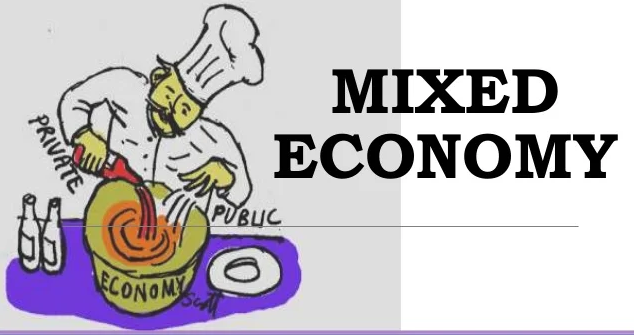
Kenya, like many developing countries, has a mixed economy with a combination of market-driven activities and government intervention. In recent years, there has been anxiety about two crucial economic factors: inflation and capital gains taxes. Inflation, or the gradual rise in the overall price level of goods and services, as well as capital gains taxes, which are levied on profits from asset sales, have a substantial impact on Kenya’s mixed economy. This article dives into the nuances of these two issues, their implications on Kenya’s economy, and viable coping techniques.
Understanding Inflation in Kenya.
In Kenya’s diverse economy, inflation is a constant worry. Inflation is caused by a variety of variables, including supply and demand mismatches, increased manufacturing costs, and worldwide market movements. For a country that relies significantly on agriculture and imports, volatility in international commodity prices can quickly effect domestic costs. This phenomena has an impact on both consumers and corporations, changing buying habits and investment decisions.
Impact on Consumer: Inflation reduces consumers’ purchasing power. Basic necessities grow more expensive, cutting disposable income and lowering overall living standards. Vulnerable people suffer disproportionately, resulting in increased economic inequality.
Impact on Businesses: Because future costs are unclear, businesses encounter difficulties in planning and budgeting. Rapid inflation can disrupt pricing strategy and stymie long-term investment. Furthermore, cost-push inflation can erode profit margins, negatively impacting firm development and sustainability.
In order to combat inflation, the Kenyan government adopts a variety of tactics, including monetary policies such as altering interest rates and reserve requirements. Improving agricultural production and investing in home sectors can also help to lessen reliance on imports and stabilize prices.
Capital Gains Taxes: An Overview.
Capital gains taxes are levies that are levied on profits made from the sale of assets such as real estate, stocks, and other investments. They are an important source of money for governments, allowing them to support public services and infrastructure initiatives. Capital gains taxes are critical in Kenya for revenue generation and economic development.
Impact on Investments: Capital gains taxes have an impact on investing decisions. High taxes might deter individuals and firms from selling assets, reducing market liquidity. Lower taxes, on the other hand, may encourage more frequent trading and investment.
Government Revenue: Capital gains taxes considerably contribute to government revenue. Effective taxation can fund critical public services such as education, healthcare, and infrastructure development, thereby promoting economic growth.
Balancing Act: It is critical to strike the correct balance between capital gains tax rates and economic growth. Excessive taxation may impede investment and economic activity, while exorbitantly low taxes may deprive the government of needed money.
Navigating the Challenges.
Given the dynamic character of Kenya’s mixed economy, navigating the issues posed by inflation and capital gains taxes requires a comprehensive approach.
Policy Coordination: It is critical that the government, central bank, and regulatory authorities work together effectively. Coordination of policies can help to control inflation and ensure equitable taxes.
Diversified Investments: To avoid the risks connected with capital gains taxes, investors should vary their holdings. This technique decreases reliance on a single asset while also lowering tax liabilities.
Indexation: Indexing the tax foundation for inflation can provide relief to taxpayers by avoiding them from being taxed on nominal gains that may not reflect real economic advances.
Public Education: Educating the public about the relevance of capital gains taxes and their consequences can encourage voluntary compliance and reduce tax evasion.
Infrastructure Development: Investing in key infrastructure projects can boost economic growth and serve as a buffer against the negative effects of inflation.
In conclusion, Kenya’s mixed economy is a complex setting in which inflation and capital gains taxes coexist. To navigate these problems, a multifaceted approach that balances the requirements of consumers, corporations, and the government is required. Kenya may limit the negative effects of inflation and leverage capital gains taxes for long-term economic growth by implementing effective laws, encouraging prudent investment, and raising public knowledge.

